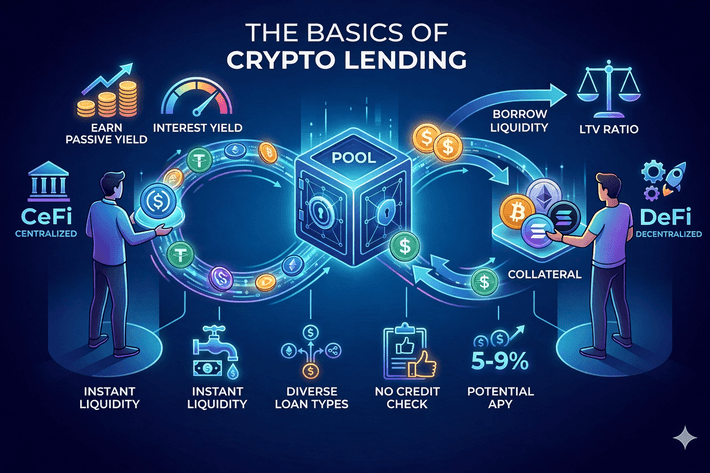Options vs. Futures: Key Differences
Although they share some common ground as financial derivatives, options and futures serve different purposes and offer different risk and reward profiles. Understanding the nuances of each is crucial for making informed investment decisions. This article will dissect the two instruments, highlighting their differences and real-world applications.
|
Options |
Futures |
|
|
Definition |
Contracts giving the right, not the obligation, to buy or sell an asset at a set price. |
Contracts obligating to buy or sell an asset at a predetermined price and date. |
|
Types |
Call (buy) and Put (sell) options. |
Standardized contracts for various assets like commodities, currencies, etc. |
|
Obligation |
No obligation to execute; the buyer can let the option expire. |
Obligation to execute the contract at maturity. |
|
Risk |
Limited to the premium paid. |
Potentially unlimited, depending on market movements. |
|
Potential Reward |
Limited to the difference between asset price and strike price, minus premium. |
Potentially unlimited, depending on market movements. |
|
Upfront Costs |
Premium payment required to buy the option. |
Initial margin required, no premiums. |
|
Execution |
Can be exercised before or at expiration (depending on option type). |
Settled at a specific future date. |
|
Primary Use |
Hedging, income generation, speculation with limited risk. |
Hedging, speculation, often for leveraging capital. |
|
Complexity |
Can be complex, especially with various combinations of buying/selling calls and puts. |
Relatively straightforward but requires understanding of the underlying asset. |
|
Suitability |
Suitable for investors seeking risk management, speculative opportunities with capped risk, and strategic plays. |
Suitable for investors and traders comfortable with high risk and seeking leverage in speculation or hedging. |
What Are Options?
Options are contracts that give the buyer the right, but not the obligation, to buy or sell an underlying asset at a specified price on or before a certain date. There are two types of options, namely Call and Put options.
The first give you the right to buy the underlying asset, while the latter give holder the right to sell the asset.
Due to their nature, options are used for hedging risk and generating income by speculating on the price movements of the underlying asset.
What Are Futures?
Futures are contractual agreements to buy or sell an asset at a predetermined price at a specified time in the future.
Unlike options, futures carry an obligation to buy or sell the asset. Futures are standardized in terms of the quantity and quality of the asset, and they are traded on exchanges.
Futures are primarily used for hedging against price movements and for speculation. They cover a wide range of assets including commodities, currencies, and financial instruments.
Key Differences
Futures require both parties to fulfill the contract at expiration, whereas options give the buyer the right, not the obligation, to execute the contract.
Another thing separating the two is the fact that options limit the buyer's risk to the premium paid, while futures pose potentially unlimited risk or reward, since the contract must be fulfilled at the agreed-upon price.
Options and futures also differ in terms of upfront costs and execution time frame. To purchase an option, you have to pay a premium upfront but you can exercise them anytime before expiration (for American stocks), while futures do not require premiums and have a set date when the contract must be settled.
Futures also may require initial margin payments.
Lastly, they differ in their application, as futures are used to hedge and speculate, with a focus on leveraging capital, while options are most commonly used for income generation, hedging and speculation with limited risk.
Real-Life Examples
If an investor buys a call option on a stock, he is predicting that the price of the stock will rise, and if he is correct in his prediction, the investor can then purchase said stock at a lower price which was set by the option. If instead the price of the stock falls, the investor can let the option expire and only lose the premium he paid on it.
Conversely, if a farmer enters into a futures contract to sell a predetermined amount of corn at a set price, he hedges against the potential risk of price drops and is obligated to sell at the agreed price regardless of the market price at the expiration of the contract.
In Conclusion
While similar as financial derivatives, options and futures cater to different investment needs and risk appetites. Options offer greater flexibility and limited risk, suitable for a variety of strategies from conservative to aggressive.
Futures, on the other hand, are geared towards those with a higher risk tolerance, offering the potential for significant gains or losses.
I have always thought of myself as a writer, but I began my career as a data operator with a large fintech firm. This position proved invaluable for learning how banks and other financial institutions operate. Daily correspondence with banking experts gave me insight into the systems and policies that power the economy. When I got the chance to translate my experience into words, I gladly joined the smart, enthusiastic Fortunly team.





